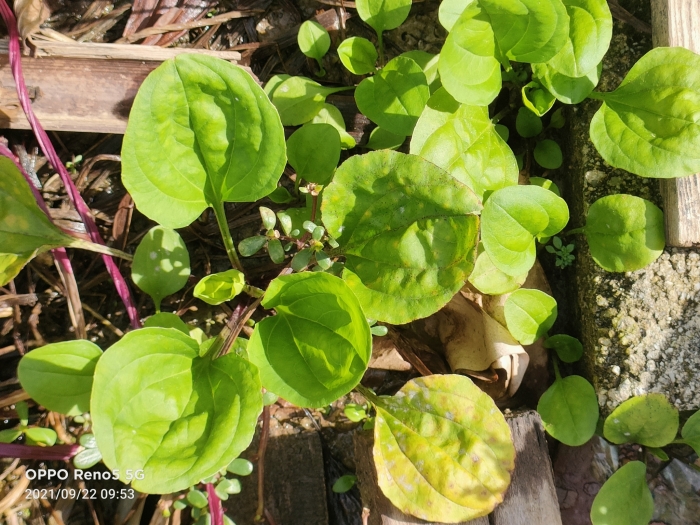Chinese Plantain
(Plantago asiatica)
Chinese Plantain (Plantago asiatica)
/
/

© Ong Jyh Seng
CC BY-SA 4.0
Image By:
© Ong Jyh Seng
Recorded By:
Copyright:
CC BY-SA 4.0
Copyright Notice:
Photo by: © Ong Jyh Seng | License Type: CC BY-SA 4.0 | License URL: http://creativecommons.org/licenses/by-sa/4.0/ | Uploader: ongzi | Publisher: iNaturalist |

























Estimated Native Range
Summary
Plantago asiatica, commonly known as Chinese plantain or Asiatic plantain, is a perennial herb that is native to a variety of habitats in East Asia, including open fields, forest edges, and grasslands, as well as disturbed areas such as roadsides and cultivated lands. It typically grows 8-24 inches tall with broad, lanceolate leaves that form a basal rosette. The plant is characterized by erect spikes of small, inconspicuous white flowers that bloom from spring to summer, followed by oval fruits containing tiny, black seeds. The flowers are not particularly showy, but they are interesting upon close inspection.
Asiatic plantain is valued for its medicinal properties, as it has been used traditionally to treat various ailments. It is also appreciated for its low maintenance and ability to thrive in a wide range of soil conditions, although it prefers moist, well-drained soils. It can tolerate partial shade to full sun exposure. In cultivation, it is sometimes used in herbal gardens or as a ground cover in naturalized areas. Gardeners should be aware that it can become aggressive and spread rapidly via seeds and rhizomes, potentially outcompeting native species. Therefore, it is important to manage its growth and prevent unwanted spread.CC BY-SA 4.0
Asiatic plantain is valued for its medicinal properties, as it has been used traditionally to treat various ailments. It is also appreciated for its low maintenance and ability to thrive in a wide range of soil conditions, although it prefers moist, well-drained soils. It can tolerate partial shade to full sun exposure. In cultivation, it is sometimes used in herbal gardens or as a ground cover in naturalized areas. Gardeners should be aware that it can become aggressive and spread rapidly via seeds and rhizomes, potentially outcompeting native species. Therefore, it is important to manage its growth and prevent unwanted spread.CC BY-SA 4.0
Plant Description
- Plant Type: Herb
- Height: 0.5-1.5 feet
- Width: 0.5-1.5 feet
- Growth Rate: Slow, Moderate
- Flower Color: Green, White
- Flowering Season: Spring, Summer
- Leaf Retention: Semi-deciduous
Growth Requirements
- Sun: Full Sun
- Water: Medium
- Drainage: Medium, Fast
Common Uses
Edible*Disclaimer: Easyscape's listed plant edibility is for informational use. Always verify the safety and proper identification of any plant before consumption., Groundcover, Low Maintenance
Natural Habitat
Native to a variety of habitats in East Asia, including open fields, forest edges, grasslands, and disturbed areas
Other Names
Common Names: Che Qian Zi, Asian Psyllium, Che Qian, Che Qian Cao, Psyllium, Chinese Plantain
Scientific Names: , Plantago asiatica,
GBIF Accepted Name: